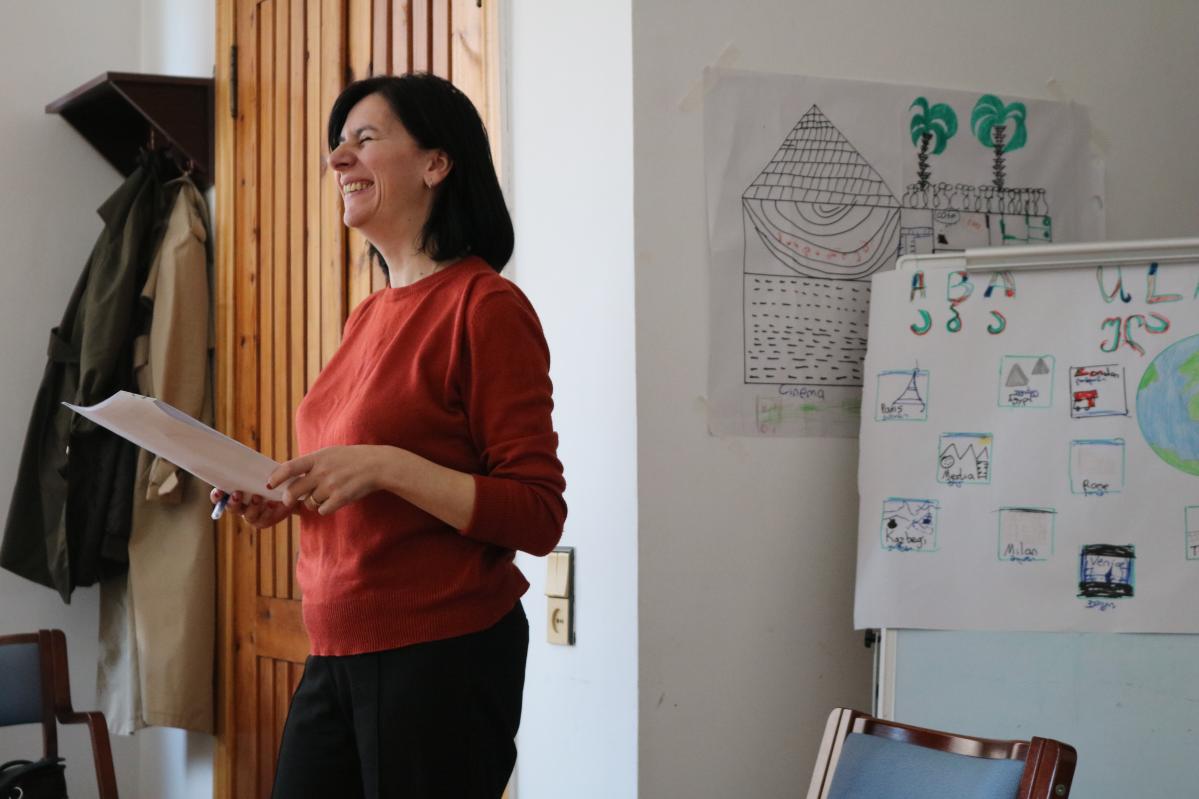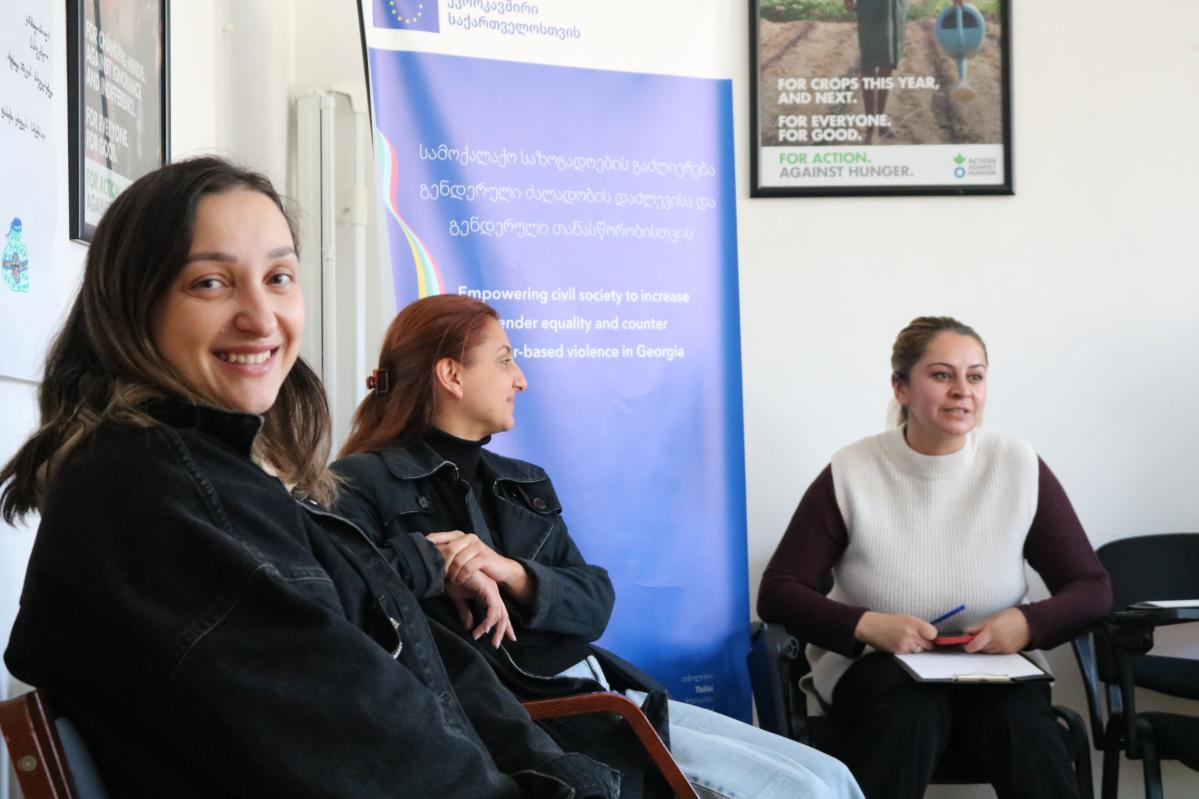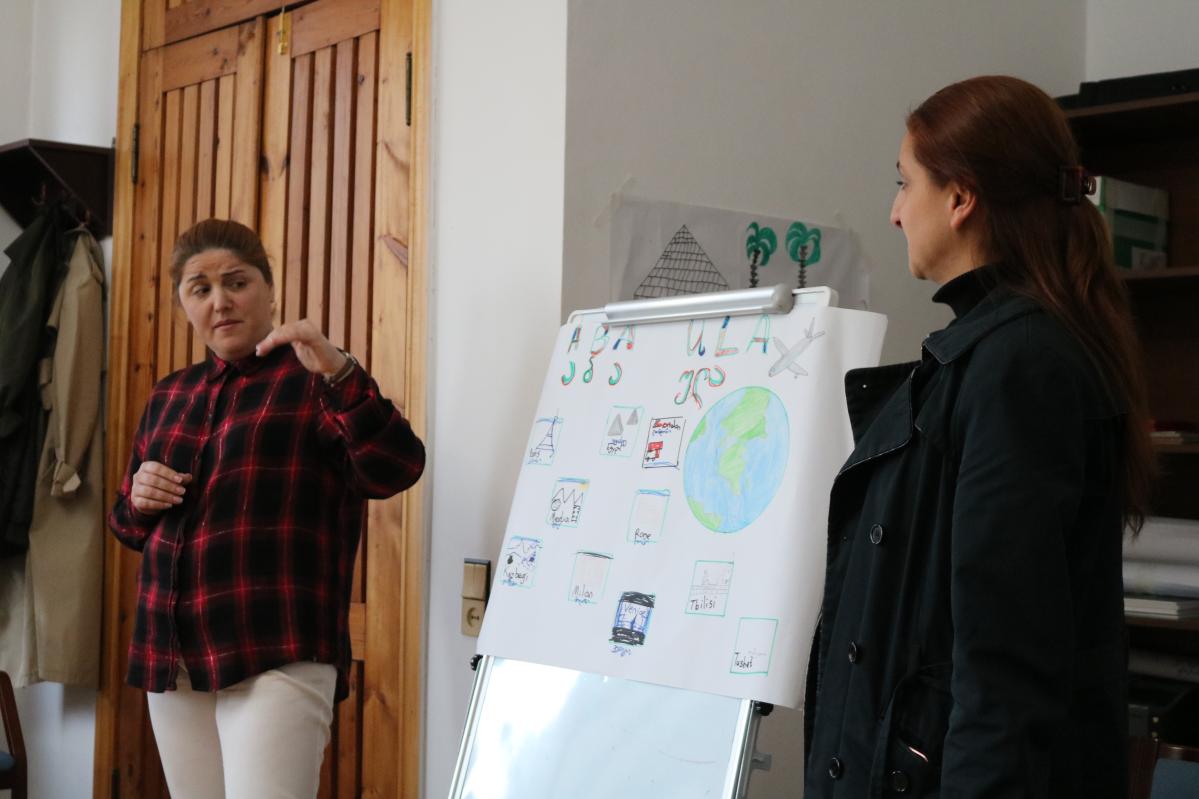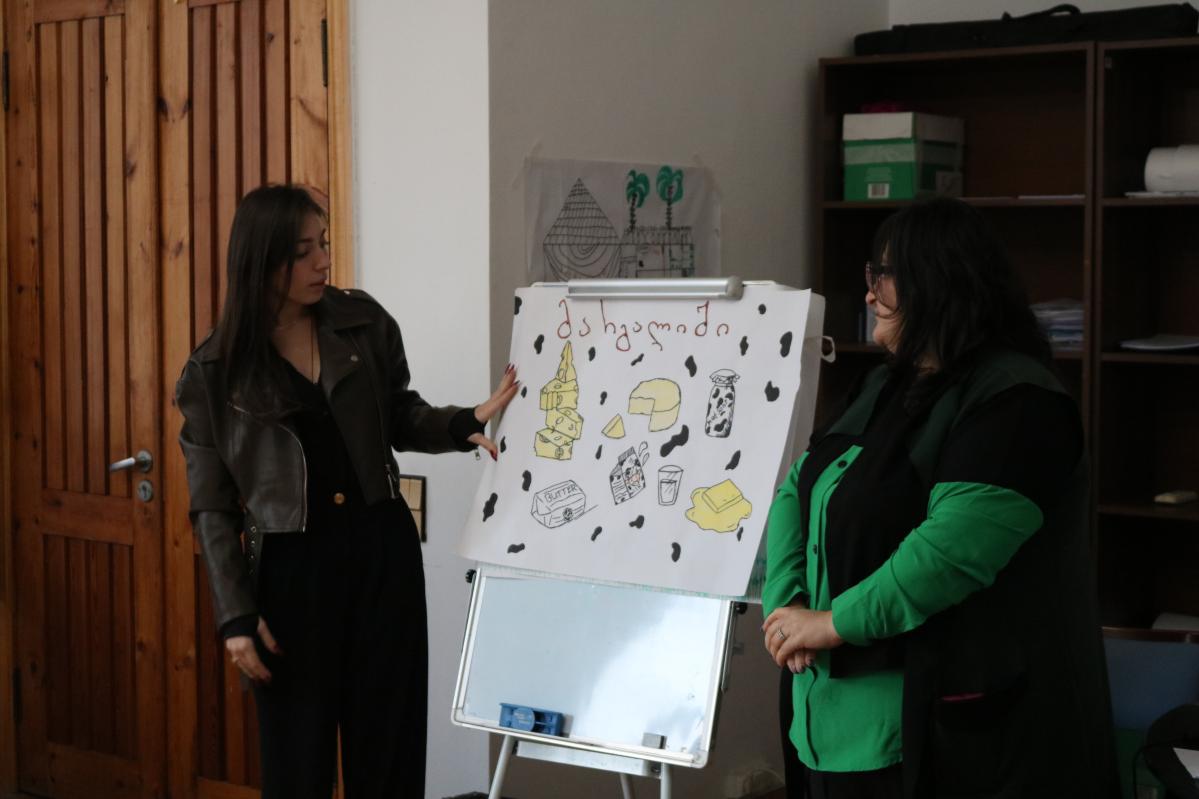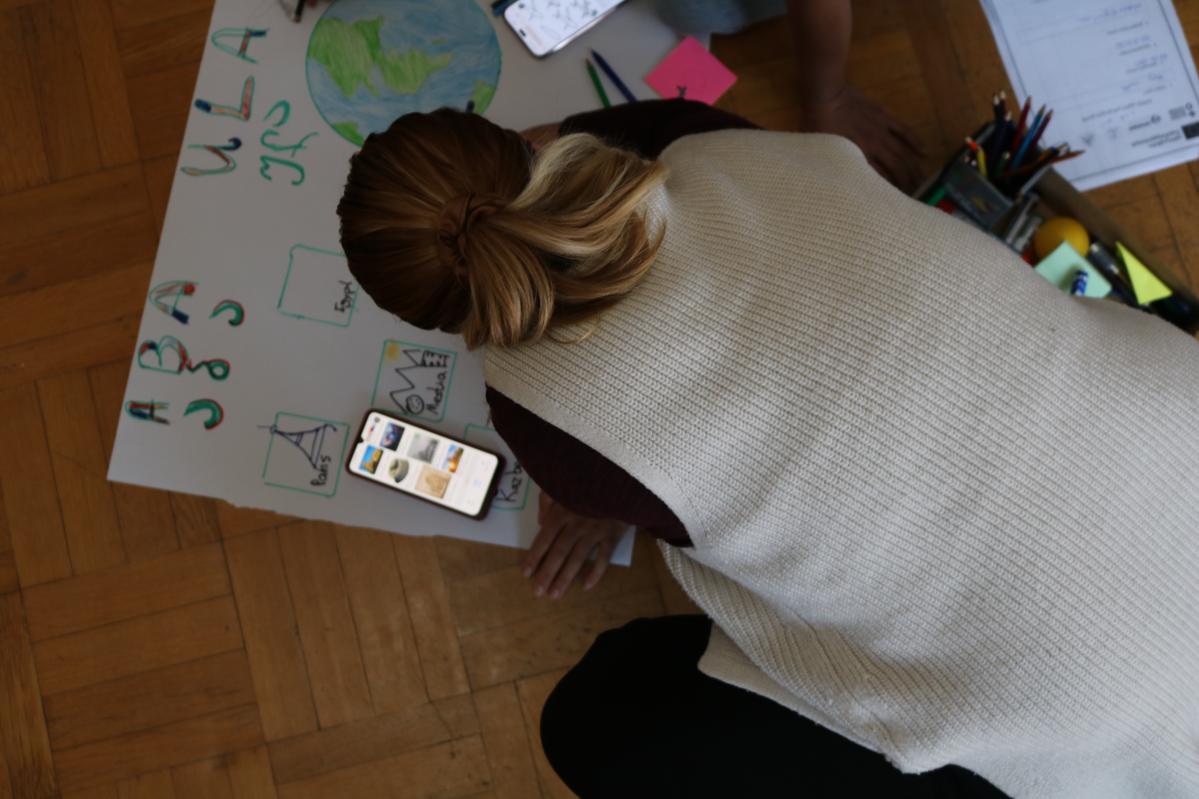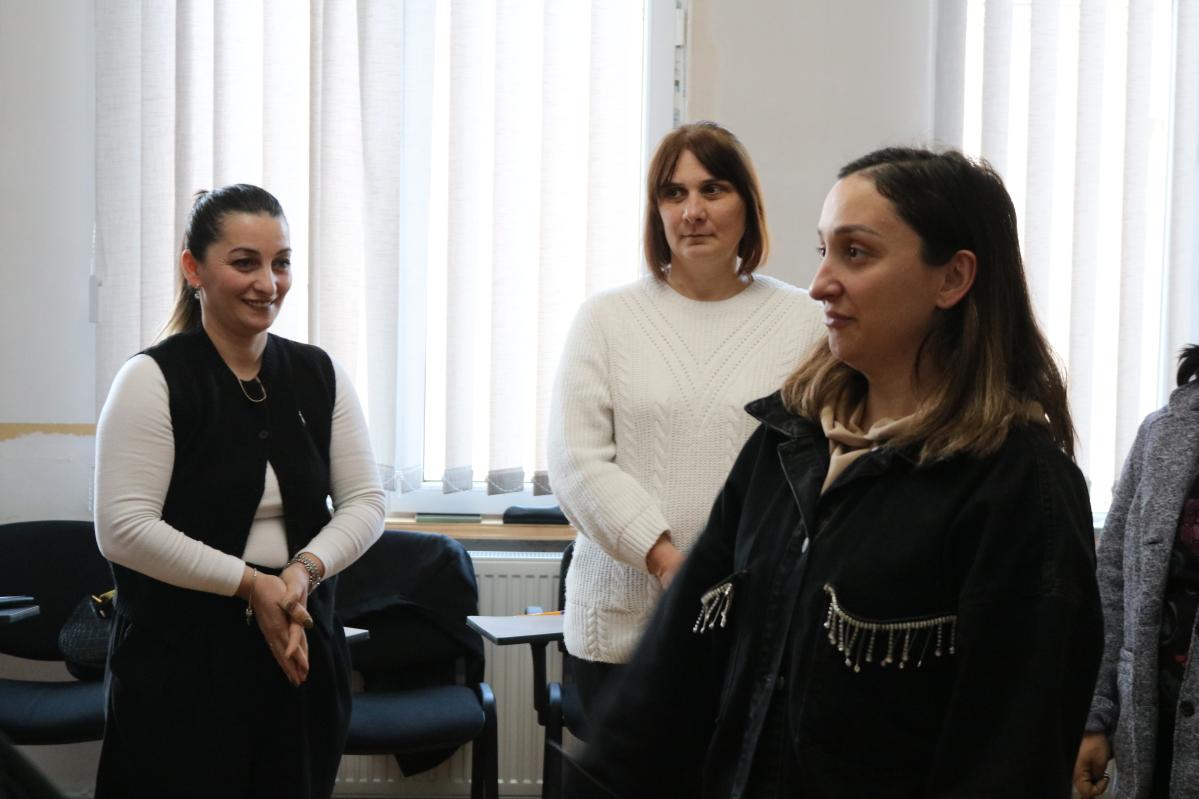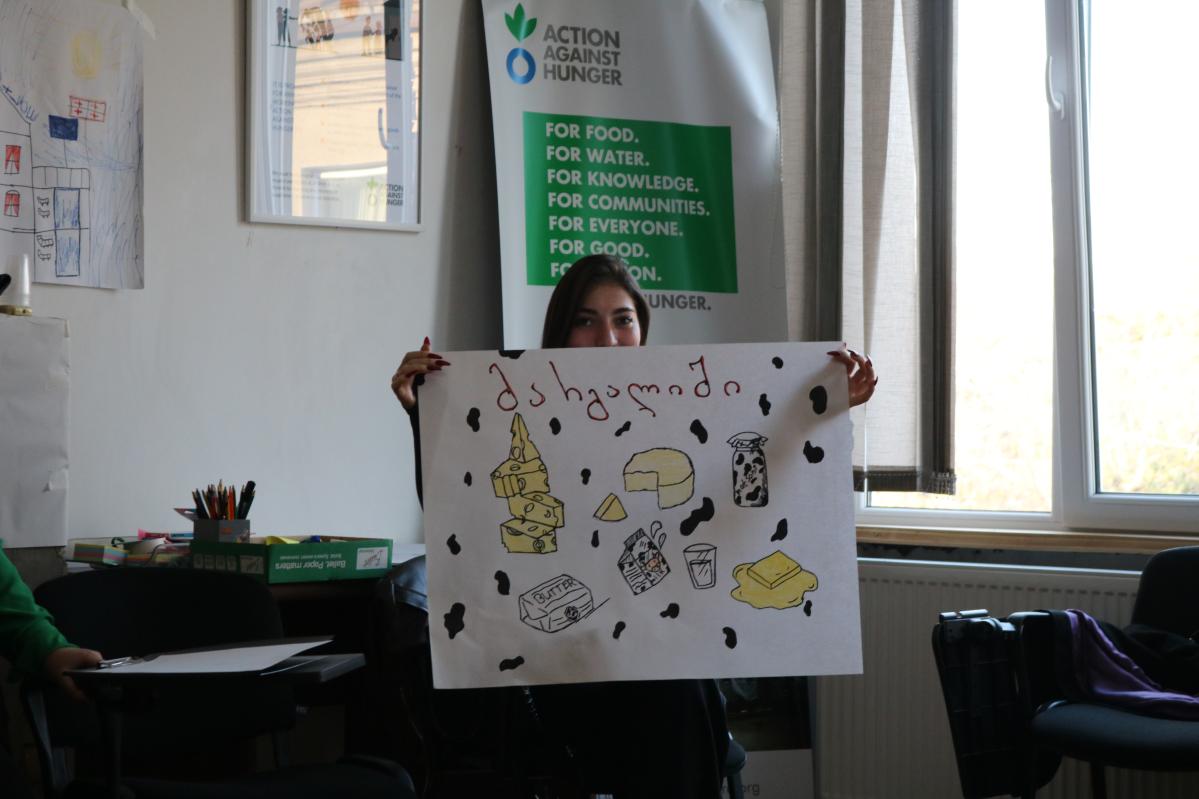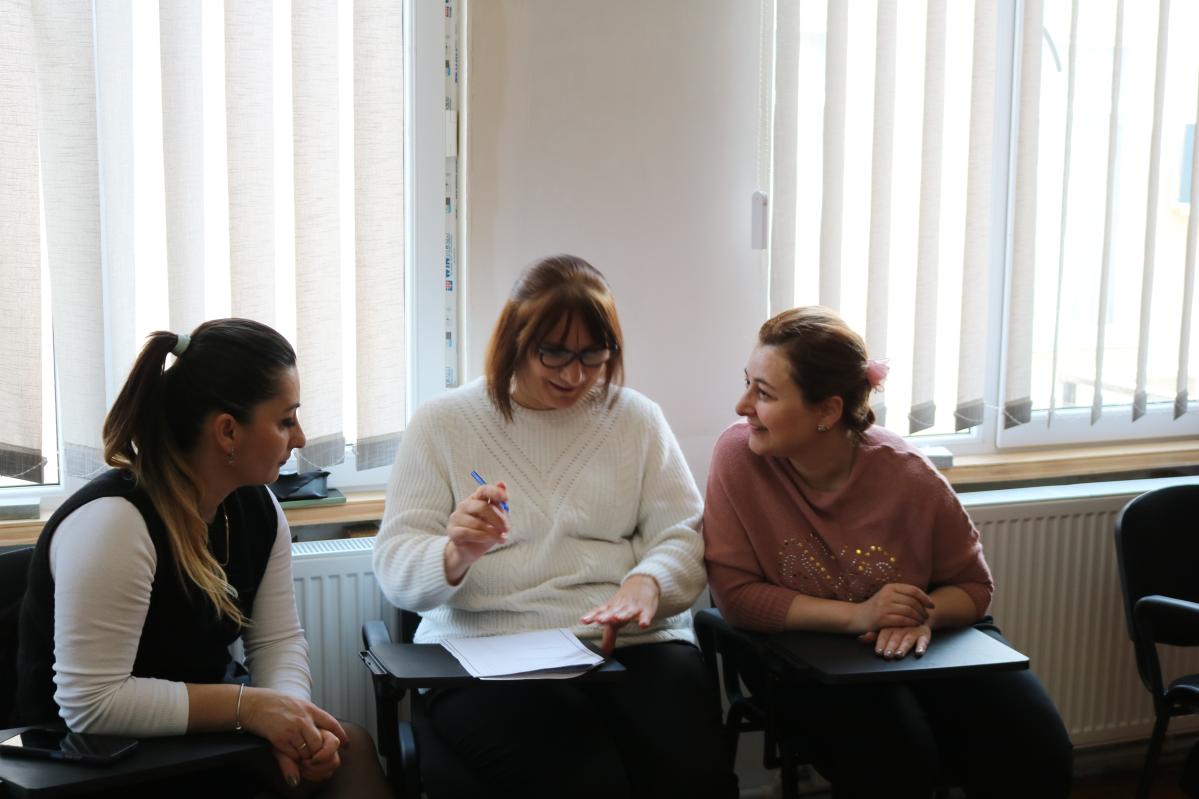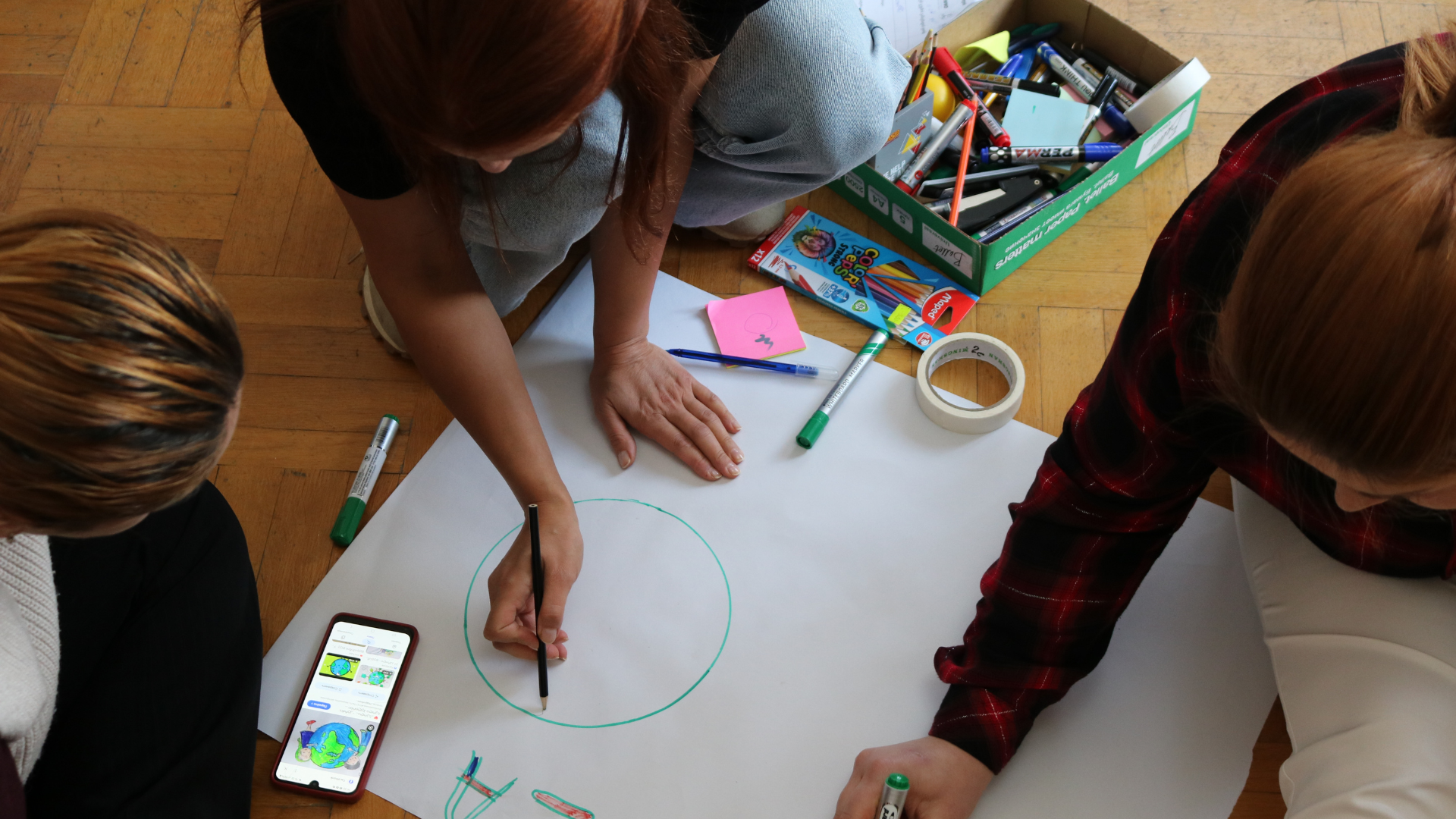

Action Against Hunger’s Social Inclusion Manager hears feedback from Zugdidi Shuttle participants
Recently, the Action Against Hunger South Caucasus Social Inclusion Manager, Lela Maisuradze, visited Zugdidi Shuttle - implemented under the European Union-funded project "Strengthening civil society to overcome gender violence and gender equality" - and its participants. Under this project, 24 Shuttles are being implemented in 6 regions in Georgia over 3 phases. In this second phase, over the course of 3 months, the Shuttle coach – Natia Tsiramua, a psychologist specialised in personal development – supports the women in strengthening their self-support skills and confidence in finding their space on the job market. By combining personal, interpersonal, social, employability and entrepreneurial skills, the Shuttle provides the participants with the tools and opportunities to access the job market.
The day before Lela’s arrival, a corporate volunteer, the business consultant Akaki Koroshinadze, met the Shuttle participants and spent a three-hour session with them on business planning skills. During Lela’s visit this knowledge was being put into practice by the coach guiding the participants through a three-step process:
- Creating a business idea
- Writing a business plan
- Presenting the business plan to the group
This collaborative exercise enhances teamwork skills and fosters creativity, as each group is asked to share their ideas with the rest of the women. Through this process, they build self-confidence in their own ideas and abilities.
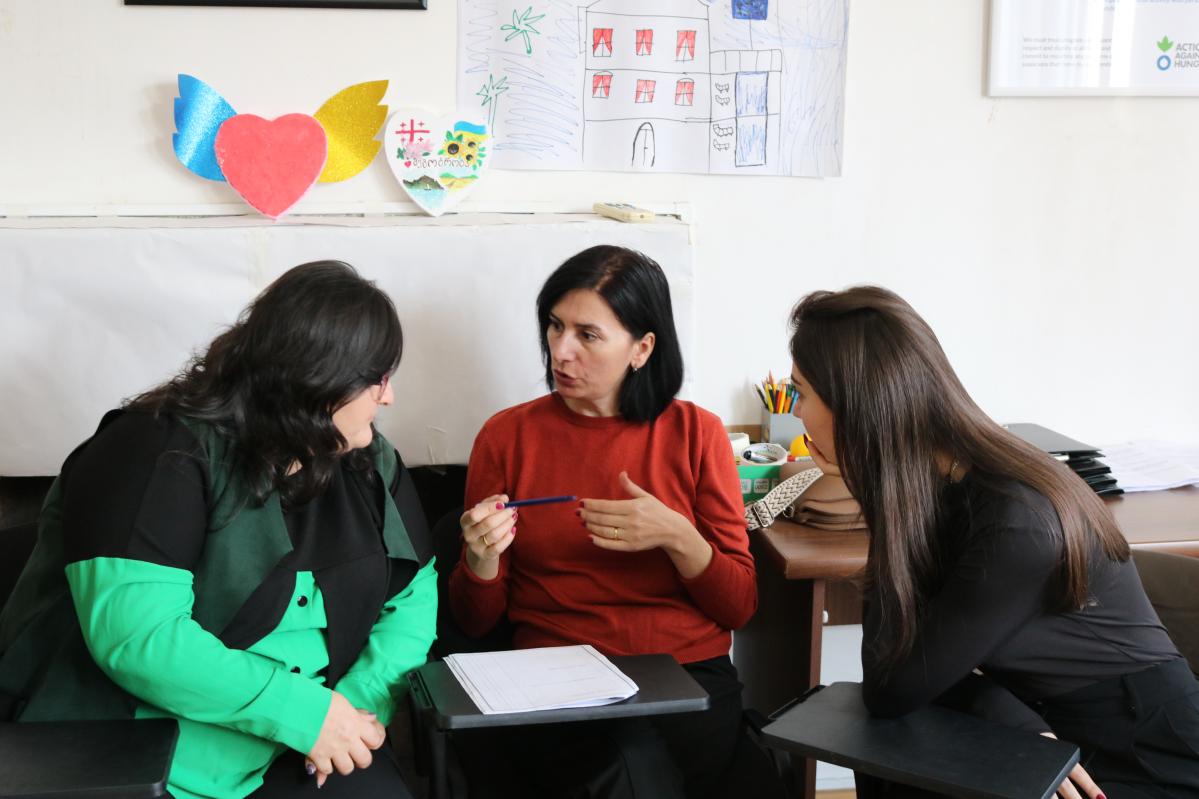
Participants working on the presentation of their business plan
Monika Gulia, a secondary school educated mother of two, applied for a spot in this second Shuttle phase after hearing about it from a former participant. Before her participation in the programme, she had little, to no, contact with others outside of her home. Now she actively engages with the other women and has had the chance to exchange experiences and find shared interests.
Elza Mghebrishvili underlines this by adding that before her acceptance into the programme, she had little professional perspective and spent the majority of her time at home. But through the coaching, she has learnt to work on herself and to believe in her own abilities. She joined the programme in the hope of finding a job but is now planning to start her own business.
“The days that I come here for the Shuttle session are the best,” a third participant, Natalia Toria, adds.
All three women agree that this experience is also supporting them in their journey to gain self-confidence while developing new job skills – both of which are needed for their future personal and professional development.
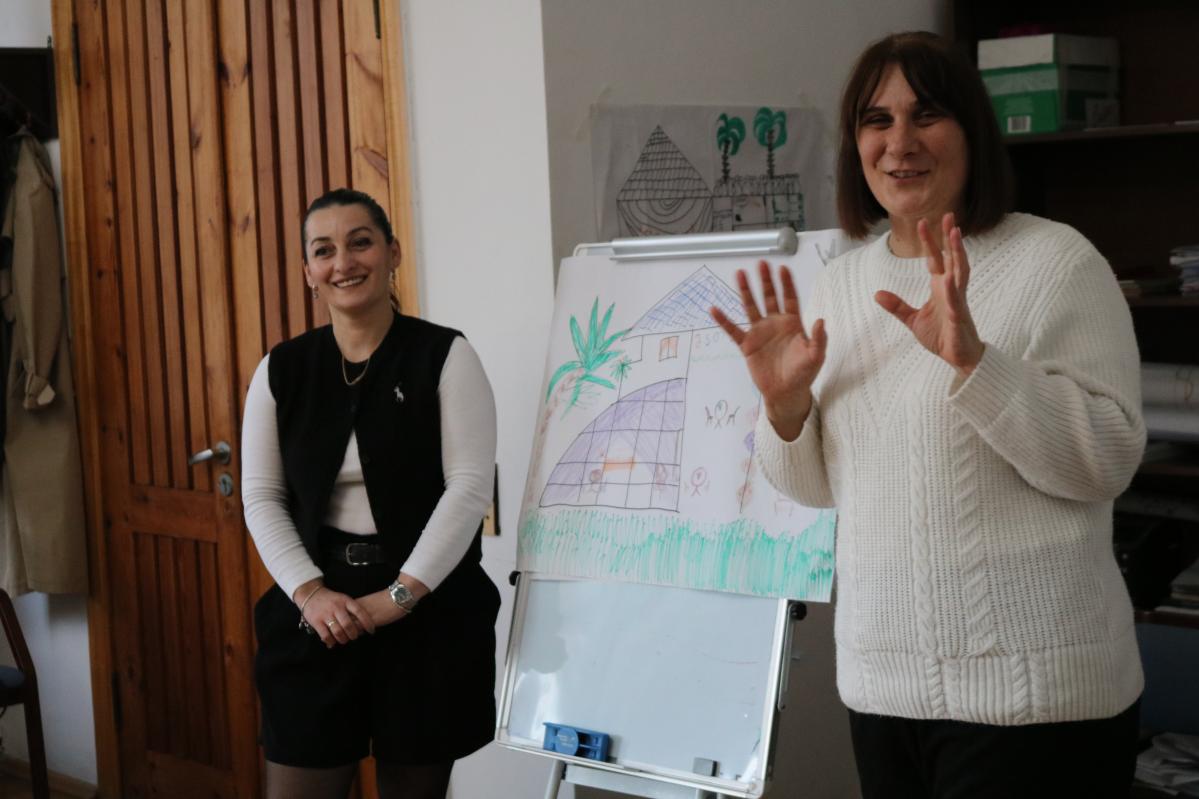
Two Shuttle participants present their business idea
Of the 22 women that joined this second phase of the Zugdidi Shuttle, 7 have already found a job and another 3 are currently in the second phase of job interviews at big companies in the region.
“Before participating in the Shuttle, I wasn’t sure I could reach my goals in life. After participating I know now that nothing is impossible,” says Shorena Gogia.
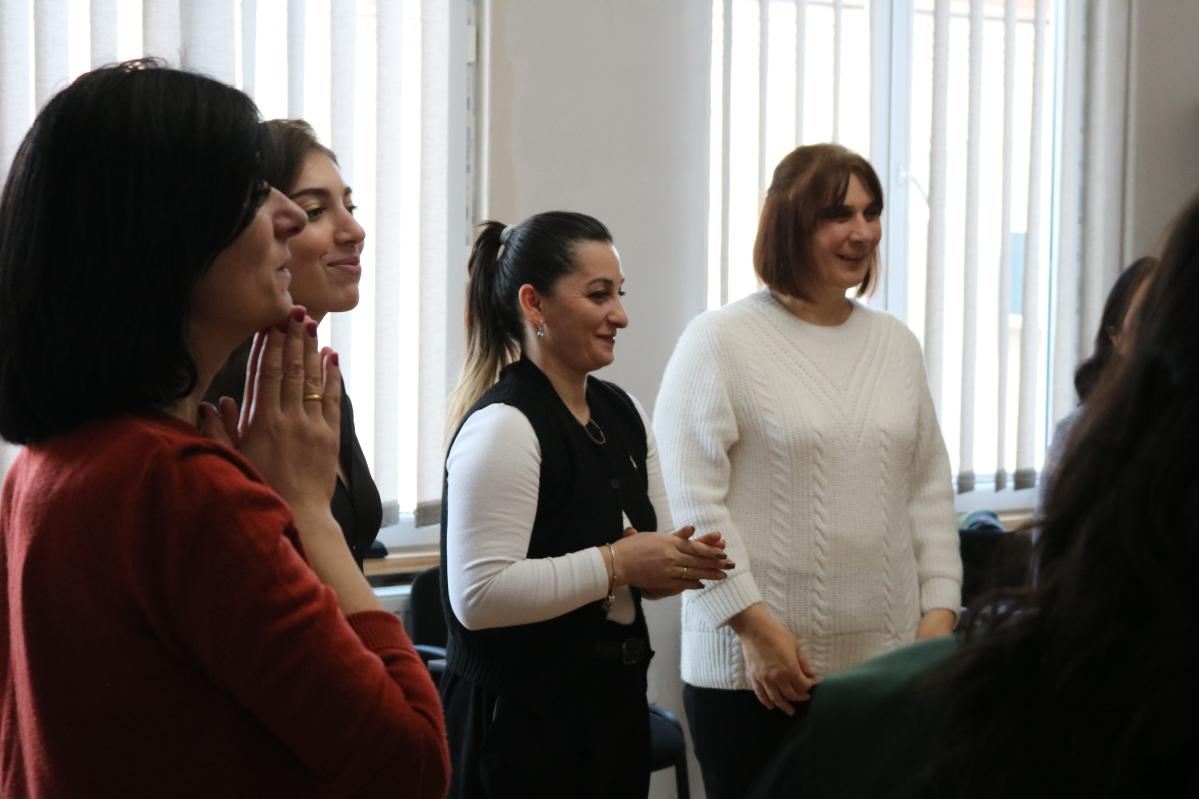
Shuttle participants receiving feedback from their coach, Natia Tsiramua
This project is led by the Center for Information and Counseling on Reproductive Health - Tanadgoma for Equality / თანადგომა თანასწორობისთვის - in partnership with Action Against Hunger South Caucasus, Women's Initiatives Supporting Group, The Union of Azerbaijani Women of Georgia / აზერბაიჯანელ ქალთა კავშირი and the National Network of Women With Disabilities შშმ ქალთა ეროვნული ქსელი. This initiative is supported by European Union in Georgia.
Please be aware the application phase for the third phase of the Shuttle is ongoing. You can find information in our posts below.
Since 2015 Action Against Hunger has been carrying out the Shuttle programme with the aim of increasing the professional and personal skills of participants. By strengthening individual competences, initiative and responsibility, participants become more competitive in the labour market. This process is supported by coaches, using a non-directive, facilitation-based approach.
Photo gallery
